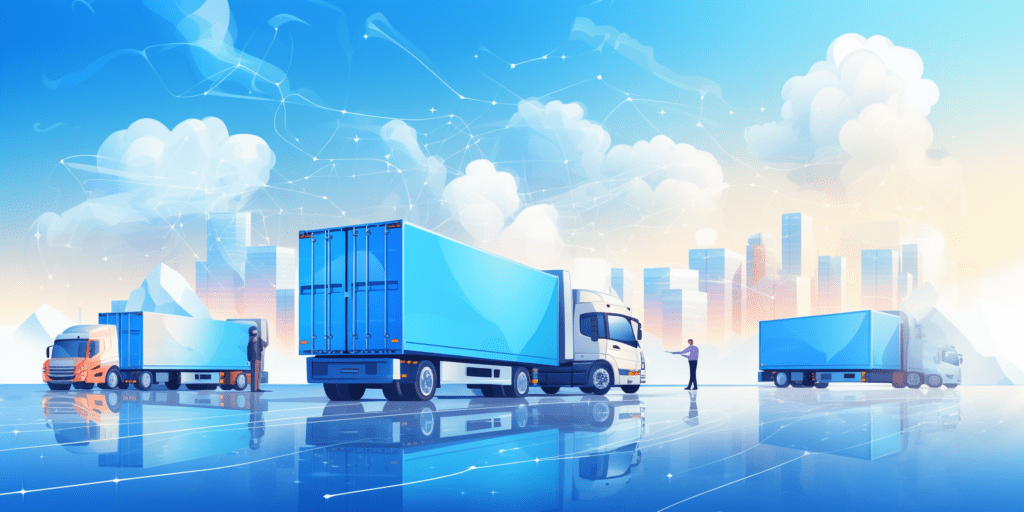Introduction
The global supply chain is a complex network of entities involved in the production, transportation, and delivery of goods. Traditional supply chain systems often face challenges such as inefficiencies, lack of transparency, and susceptibility to fraud. Blockchain technology introduces a transformative solution through supply chain tokenization. This article explores how blockchain streamlines trade and logistics by tokenizing the supply chain, enhancing transparency, traceability, and efficiency.
1. Understanding Supply Chain Tokenization
- Definition: Supply chain tokenization involves representing physical and digital assets, such as products, invoices, and shipments, as digital tokens on a blockchain.
- Token Types:
- Asset Tokens: Represent physical goods within the supply chain.
- Utility Tokens: Provide access or rights to specific functionalities within the supply chain network.
- Security Tokens: Represent ownership or investment in underlying assets.
- Benefits:
- Improved Transparency: Every transaction and movement of assets is recorded on the blockchain, enhancing visibility across the supply chain.
- Reduced Fraud: Tokenization reduces the risk of fraud by providing a tamper-resistant and auditable record of transactions.
- Enhanced Traceability: The origin and journey of products can be traced in real-time, improving accountability and quality control.
2. Streamlining Trade Processes
- Smart Contracts: Automate and enforce contractual agreements through self-executing smart contracts, reducing the need for intermediaries and minimizing delays.
- Immutable Records: The blockchain’s immutable nature ensures that once information is recorded, it cannot be altered. This feature enhances the integrity of records throughout the supply chain.
- Real-Time Monitoring: Supply chain tokenization enables real-time monitoring of the movement, temperature, and conditions of goods in transit, allowing for proactive intervention in case of deviations.
3. Supply Chain Finance and Tokenization
- Faster Settlements: Tokenization facilitates faster and more efficient settlement processes, reducing the time and cost associated with traditional financing methods.
- Liquidity Improvement: Digital tokens representing assets can be traded on blockchain-based platforms, unlocking liquidity and providing new financing opportunities.
- Reduced Counterparty Risk: Smart contracts and tokenization mitigate counterparty risk by automating and securing financial transactions.

4. Integration of IoT Devices
- Sensor Integration: IoT devices, such as temperature and humidity sensors, can be integrated with supply chain tokens to provide real-time data on the condition of goods.
- Automated Data Entry: Data from IoT devices is automatically recorded on the blockchain, ensuring accuracy and reliability in the supply chain records.
5. Cross-Border Trade Facilitation
- Customs Compliance: Tokenized supply chain records streamline customs processes by providing transparent and verifiable documentation, reducing the risk of delays and errors.
- Trade Finance Efficiency: Improved transparency and traceability in cross-border transactions enhance the efficiency of trade finance processes.
6. Industry Use Cases
- Food Safety: Tokenization enables immediate tracking of the origin and journey of food products, improving traceability and allowing for rapid response to recalls.
- Pharmaceuticals: The pharmaceutical industry can use supply chain tokenization to verify the authenticity of drugs, reducing the risk of counterfeit products.
- Automotive: Tokenization ensures transparency in the sourcing of automotive components, reducing the risk of supply chain disruptions.
Conclusion
Supply chain tokenization is a revolutionary application of blockchain technology that brings transparency, traceability, and efficiency to global trade and logistics. By representing physical and digital assets as digital tokens on a tamper-resistant and decentralized ledger, blockchain transforms traditional supply chain systems.
The adoption of supply chain tokenization not only streamlines trade processes but also introduces new possibilities for financing, risk management, and collaboration across the supply chain ecosystem. As industries recognize the potential benefits, the integration of blockchain and tokenization is poised to redefine the future of global supply chains.
Disclaimer: This article is for informational purposes only and does not constitute financial, investment, or legal advice. Readers should conduct their research and consult with relevant professionals before making decisions.







